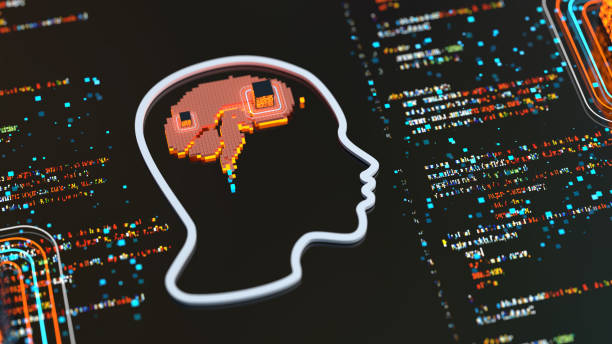What is Artificial Intelligence and Why Does it Affect Our Career Future?

Artificial Intelligence (AI), in short, is the simulation of human intelligence processes by machines, especially computer systems.
These processes include learning (Machine Learning), reasoning, and self-correction.
But why has #Artificial_Intelligence become so important? The simple answer is that AI can process vast amounts of data faster and more accurately than humans, offering solutions that previously seemed impossible.
From medical diagnosis to self-driving cars, AI is transforming various industries and directly and indirectly affecting the future of AI careers.
The changes brought about by artificial intelligence require careful consideration and preparation to adapt to these developments.
The future of AI careers is a vital topic for young people and professionals to prepare themselves for upcoming opportunities and challenges.
By better understanding how AI works and its impact on various industries, we can better prepare ourselves for the future of AI careers.
This preparation includes acquiring new skills and adapting to changing job roles.
The future of AI careers is not just a challenge, but a great opportunity for progress and innovation.
Is your company’s website as professional and trustworthy as it should be? With specialized corporate website design by Rasavab, create an online presence that reflects your credibility and attracts more customers.
✅ Create a powerful and professional image for your brand
✅ Convert visitors into real customers
⚡ Get a free consultation now!
The Role of Artificial Intelligence in Various Industries: Opportunities and Challenges
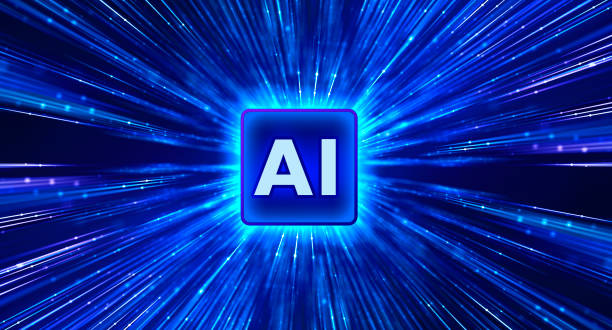
Artificial Intelligence (AI) is no longer a science-fiction concept, but a tangible reality that has permeated various industries.
In the #Healthcare sector, AI assists doctors in faster and more accurate disease diagnosis, provides personalized treatments, and even plays a role in robotic surgeries.
In the #Manufacturing industry, AI is used to optimize processes, reduce costs, and increase productivity.
In the #Financial sector, AI is employed for fraud detection, risk management, and providing financial advisory services.
However, these developments also bring challenges.
One of the biggest challenges is the replacement of some traditional jobs with automated systems.
This necessitates retraining and upskilling the workforce to adapt to the future of AI careers.
Furthermore, ethical and legal issues related to the use of AI, such as data privacy and the accountability of autonomous systems, must be carefully considered.
The future of AI careers in various industries requires a balance between productivity and responsibility.
The future of AI careers demands the development of soft and hard skills to confront the opportunities and challenges arising from this technology.
Which Jobs Are at Risk of Extinction and What Skills Are Needed for Survival?
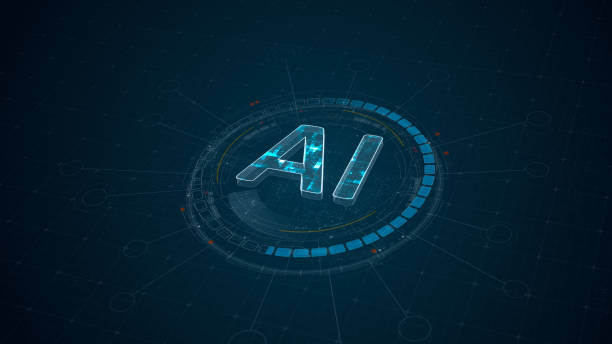
With the advancement of #Artificial_Intelligence (AI), some traditional jobs are at risk of extinction.
Jobs based on repetitive and routine tasks, such as telephone operators, data entry clerks, and some manufacturing jobs, will be most affected.
To survive in these conditions, acquiring new skills is essential.
Skills such as critical thinking, problem-solving, creativity, emotional intelligence, and communication skills are among those that cannot be easily replaced by AI.
Furthermore, technical skills related to AI, such as data science, machine learning, and software development, will be in high demand in the job market.
Adaptability and a willingness for continuous learning are also key characteristics for success in the future of AI careers.
Individuals must be prepared to keep their skills updated and to keep pace with technological changes.
The table below shows some at-risk jobs and the skills required to adapt to the future of AI careers.
| Jobs at Risk | Required Skills |
|---|---|
| Telephone Operator | Communication Skills, Problem Solving |
| Data Entry Clerk | Data Analysis Skills, Critical Thinking |
| Some Manufacturing Jobs | Technical Skills, Problem Solving |
The future of AI careers is not only a challenge but also an opportunity for personal and professional growth and development.
New Jobs Created by Artificial Intelligence

While Artificial Intelligence (AI) threatens some jobs, it also creates new career opportunities.
Jobs such as Data Scientist, Machine Learning Engineer, AI Ethicist, AI Analyst, and AI Security Specialist are among those that will be in high demand in the job market.
These jobs require specialized knowledge in various fields including mathematics, statistics, computer science, and ethics.
Furthermore, jobs focusing on human-machine interaction, such as AI User Interface Designers and AI Training Specialists, will also gain more importance.
These individuals play a crucial role in ensuring that AI is used effectively and responsibly in work environments.
The future of AI careers requires specialists who can implement and manage AI in various fields.
The future of AI careers also requires individuals who can address the ethical and social challenges arising from AI.
Are you tired of your e-commerce website not generating as much revenue as it could? Rasavab, specialized in professional e-commerce website design, solves this problem permanently!
✅ Increase sales rates and revenue
✅ High load speed and unparalleled user experience
⚡ Get a free e-commerce website design consultation
Education and Skills Required for Success in the Age of Artificial Intelligence
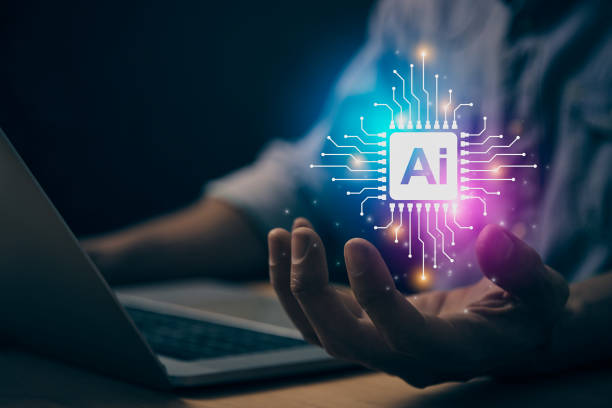
For success in the age of #Artificial_Intelligence (AI), acquiring appropriate education and skills is essential.
Online and university courses in data science, machine learning, artificial intelligence, and computer science provide a strong foundation for entering this field.
Furthermore, participating in bootcamps and workshops can teach you the practical skills needed to work with AI.
Soft skills such as critical thinking, problem-solving, creativity, and communication skills are also of great importance.
These skills help you face complex challenges, provide innovative solutions, and communicate effectively with your colleagues.
Continuous learning and staying updated with the latest advancements in AI are also crucial for success in this field.
The future of AI careers requires individuals who possess both technical knowledge and soft skills.
The future of AI careers needs specialists who can continuously learn and adapt to technological changes.
How Can We Prepare Ourselves for the Future of AI Careers?

Preparing for the future of AI careers requires continuous planning and effort.
The first step is to assess your current skills and knowledge and identify strengths and weaknesses.
Then, you need to identify the skills essential for success in the AI field and plan to acquire them.
Participating in training courses, bootcamps, and workshops can help you gain these skills.
Building a network with active individuals in the AI field can also provide you with new career opportunities.
It is also important to participate in personal or professional projects related to AI to gain practical experience.
The future of AI careers requires individuals who possess both theoretical knowledge and practical experience.
The future of AI careers needs specialists who can work independently and in teams and provide innovative solutions.
Ethics and Responsibility in the Development and Use of Artificial Intelligence
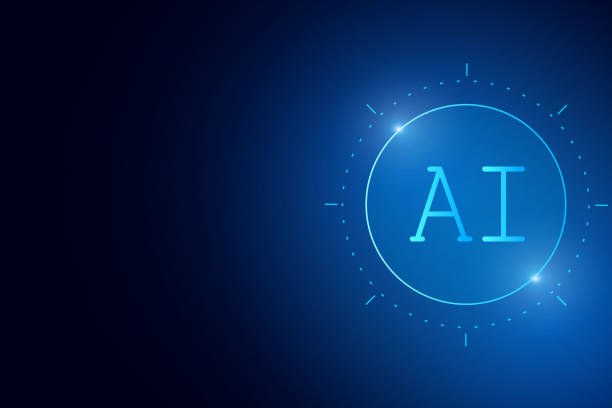
With the widespread use of #Artificial_Intelligence (AI), ethical issues and responsibility gain more importance.
The development and use of AI must preserve individuals’ rights and privacy and prevent discrimination and inequality.
AI algorithms must be transparent and explainable to prevent incorrect or discriminatory decisions.
Furthermore, the accountability of AI systems must be clear so that in case of error or harm, responsibility can be assigned.
Establishing appropriate laws and regulations to govern the use of AI is also essential.
The future of AI careers requires specialists who pay attention to ethical issues and responsibility.
The future of AI careers needs individuals who can develop and use AI in a way that benefits society.
The table below shows some ethical challenges and proposed solutions in the field of AI.
| Ethical Challenges | Proposed Solutions |
|---|---|
| Privacy Protection | Use of encryption methods, creation of privacy protection laws |
| Discrimination | Use of diverse data, review of algorithms |
| Accountability | Defining clear responsibilities, establishing oversight systems |
The Role of Governments and Policymakers in Managing the Future of AI Careers
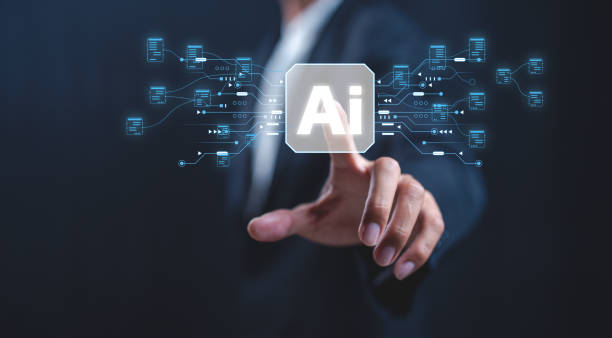
Governments and policymakers play a crucial role in managing the future of AI careers.
By creating appropriate policies, they can support the responsible development and use of AI and protect the workforce from its negative effects.
Investing in workforce education and retraining, creating new job opportunities, and supporting nascent businesses in the AI sector are among the actions governments can take.
Furthermore, establishing suitable laws and regulations to govern the use of AI and protect individuals’ rights and privacy is essential.
Collaboration among government, industry, and academia is also necessary for the responsible and sustainable development of AI.
The future of AI careers requires a comprehensive and coordinated approach from governments and policymakers.
The future of AI careers needs policies that both support innovation and protect the rights and interests of the workforce.
Are you tired of missing out on business opportunities due to not having a professional corporate website? Worry no more! With Rasavab’s corporate website design services:
✅ Your brand’s credibility and professionalism will increase.
✅ You will attract more customers and sales leads.
⚡ Get a free consultation now to get started!
Case Studies of Leading Companies and Organizations Using Artificial Intelligence
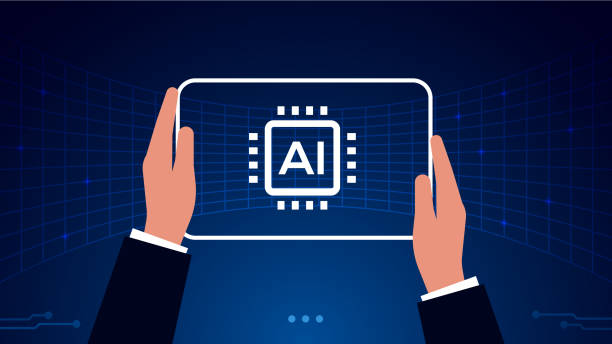
Examining case studies of leading companies and organizations using #Artificial_Intelligence (AI) can provide valuable insights into how AI is implemented and managed in work environments.
Companies such as Google, Amazon, Microsoft, and Tesla are among the pioneers in using AI in various fields.
These companies use AI to improve their products and services, optimize processes, and increase productivity.
Reviewing the strategies and approaches of these companies can help other organizations successfully implement AI.
Furthermore, examining the challenges and successes of these companies can offer valuable lessons for managing the future of AI careers.
The future of AI careers requires learning from the experiences of leading companies in this field.
The future of AI careers needs organizations that can effectively and responsibly implement AI in their work environments.
Outlook on the Future of AI Careers
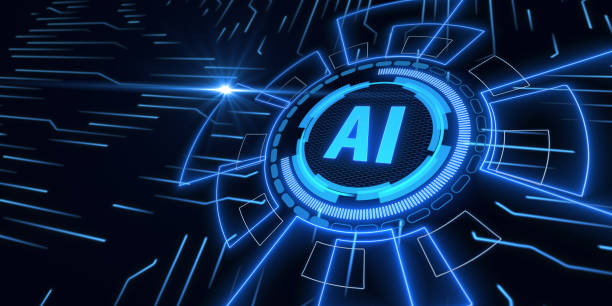
The future of AI careers is very bright and full of new opportunities.
With technological advancements and the widespread use of AI, the demand for AI specialists in various industries will increase.
New jobs will be created, and traditional jobs will be transformed.
Individuals who possess the necessary skills and knowledge can benefit from these opportunities and succeed in the future of AI careers.
However, it is important to pay attention to the ethical and social challenges arising from AI and support its responsible development and use.
The future of AI careers requires a comprehensive and sustainable approach that both supports innovation and protects the rights and interests of individuals.
The future of AI careers allows us to have a better life, but this requires effort and cooperation from all of us.
Frequently Asked Questions
| Question | Answer |
|---|---|
| What impact will AI have on the future job market? | AI will automate repetitive jobs, but at the same time, it will create new and more complex jobs in areas such as the development, maintenance, and training of AI systems. |
| Which jobs are most at risk of being replaced by AI? | Jobs involving repetitive, rule-based tasks with low requirements for creativity or emotional intelligence, such as some manufacturing jobs, data entry, and simple customer service, are most at risk. |
| What skills are essential for success in the future job market with AI? | Skills such as critical thinking, complex problem-solving, creativity, emotional intelligence, data literacy, the ability to work with AI, and lifelong learning are highly important. |
| Will AI lead to widespread unemployment? | Some jobs will disappear, but history has shown that new technologies, instead of causing widespread unemployment, reshape the job market and create new jobs. The need for adaptation and retraining is crucial. |
| What new job opportunities emerge with the advent of AI? | Jobs such as Machine Learning Engineer, Data Scientist, AI Ethicist, Human-AI Interaction Designer, and Digital Transformation Consultant are among the new opportunities. |
| What is the role of education in preparing for the future job market with AI? | Education should focus on developing soft skills, computational thinking, digital literacy, and the ability for continuous learning to prepare individuals for future changes. |
| How can I prepare myself for the changes in the job market caused by AI? | By learning new skills related to AI and data, strengthening soft skills, developing critical thinking and creativity, and adopting lifelong learning, you can prepare yourself. |
| Will AI ethics become an important career field? | Yes, given growing concerns about AI biases, privacy, and autonomous decision-making, the role of AI ethics specialists will become crucial for ensuring its responsible development. |
| What is the importance of human-AI collaboration in the future of work? | Human-AI collaboration, rather than competition, will shape the future of the job market. AI can be a tool to increase human productivity and focus on more complex and creative tasks. |
| Which industries will be most affected by AI? | Almost all industries will be affected, but sectors such as healthcare, finance, transportation, manufacturing, education, and customer service are pioneers in adopting and transforming through AI. |
And other advertising services from Rasavab Advertising Agency:
- Smart Direct Marketing: Transform digital branding with SEO-driven content strategy.
- Smart Social Media: Designed for businesses seeking online growth through SEO-driven content strategy.
- Smart Marketing Automation: An innovative platform for improving customer acquisition with custom programming.
- Smart Social Media: Professional optimization to increase sales using Google Ads management.
- Smart Sales Automation: A novel service to increase click-through rates through Google Ads management.
And over hundreds of other services in internet advertising, advertising consultation, and organizational solutions.
Internet Advertising | Advertising Strategy | Advertorials
Sources
The Future of AI Careers on Forbes
AI Career Challenges on LinkedIn
AI Career Opportunities from IBM
Comprehensive Analysis of the AI Job Market on Medium
? Are you looking to elevate your business in the digital world? Rasavab Afarin, a leading digital marketing agency, with expertise in SEO, online advertising, and fast website design, paves the way for your success.
📍 Tehran, Mirdamad Street, next to Bank Markazi, Southern Kazeroon Alley, Ramin Alley, No. 6


